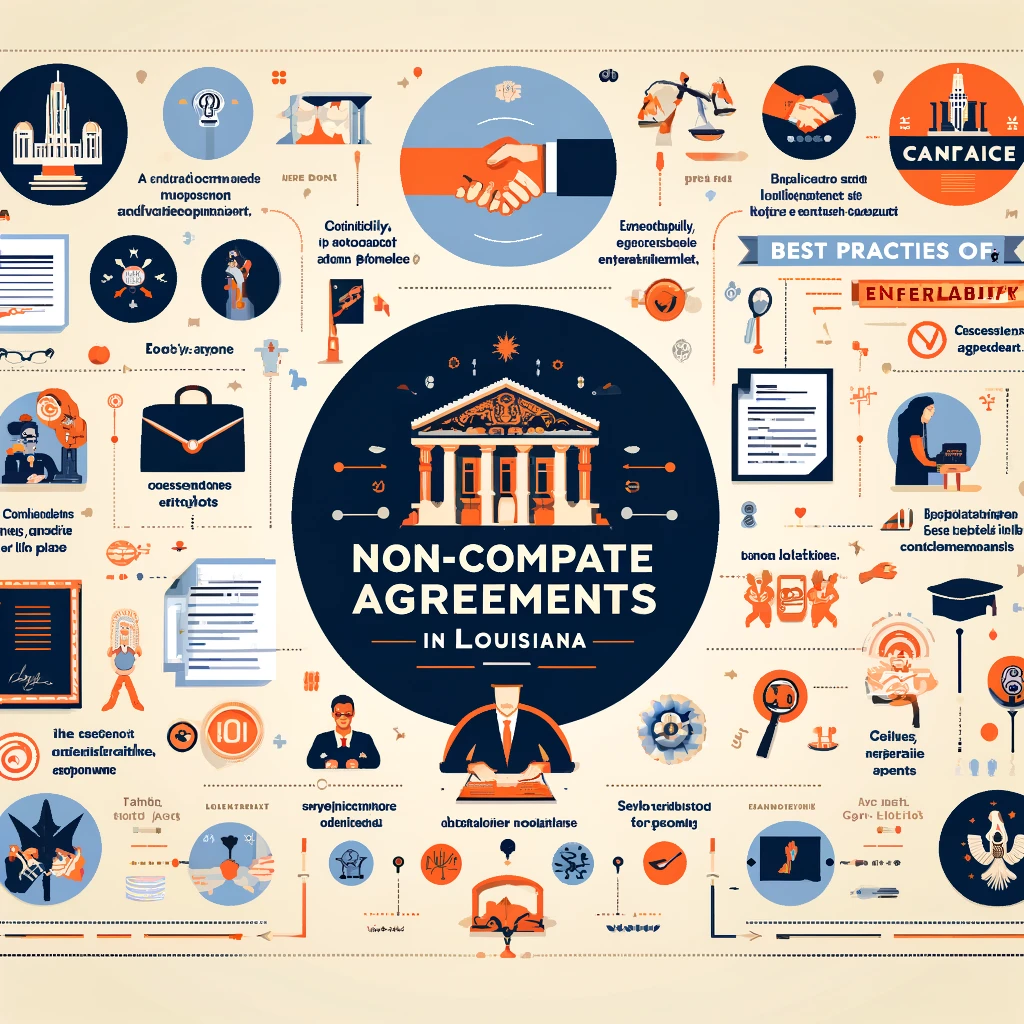Navigating Non-Compete Agreements in Louisiana: An In-Depth Analysis
In the competitive landscape of modern business, non-compete agreements have become a common tool for protecting proprietary information and maintaining competitive advantage. However, the enforceability of these agreements varies significantly from state to state within the United States. This comprehensive guide delves into the specifics of non-compete agreements in Louisiana, outlining the legal landscape, key considerations for both employers and employees, and best practices for drafting enforceable agreements.

Introduction to Non-Compete Agreements in Louisiana
Non-compete agreements, also known as covenants not to compete, are contracts in which one party agrees not to enter into or start a similar profession or trade in competition against another party. In Louisiana, like in many other states, these agreements are subject to specific legal scrutiny to ensure they are fair and reasonable to all parties involved.
The Legal Framework Governing Non-Competes in Louisiana
Louisiana's approach to non-compete agreements is governed by both statutory law and judicial interpretations. The primary statute, La. R.S. 23:921, outlines the conditions under which non-compete agreements are considered valid and enforceable.
For a deeper understanding of the legal framework, the Louisiana State Legislature’s website offers insights into the current statutes, which can be found at Louisiana State Legislature.
Enforceability of Non-Compete Agreements in Louisiana
To be enforceable in Louisiana, non-compete agreements must meet several specific criteria:
Reasonableness in Scope and Duration: The agreement must not exceed a reasonable geographic area and time period. Typically, Louisiana courts have found one to two years to be a reasonable duration, and the geographic limit must be specific and related to the areas where the employer operates.
Legitimate Business Interests: The employer must demonstrate that the agreement protects a legitimate business interest, such as proprietary information, trade secrets, or substantial customer relationships.
Consideration: There must be some form of consideration (i.e., something of value) given to the employee in exchange for their agreement not to compete.
For insights into case law and judicial interpretations, legal databases such as LexisNexis or academic resources from institutions like the Louisiana State University Law Center can be valuable.
Crafting Enforceable Non-Compete Agreements in Louisiana
Given the stringent requirements for enforceability, drafting a non-compete agreement in Louisiana requires careful consideration and precision.
Best Practices for Employers
Clearly Define Restricted Activities: Be explicit about what constitutes competitive activities and ensure they are directly related to the employee’s role and the company’s operations.
Specify Geographic and Temporal Limits: Define the geographical scope and duration of the non-compete clause as precisely as possible, adhering to the standards of reasonableness recognized by Louisiana courts.
Protect Legitimate Business Interests: Identify and articulate the specific business interests that the non-compete agreement is designed to protect.
Considerations for Employees
Understand Your Rights: Be aware of your rights and the limitations that an enforceable non-compete agreement imposes on your future employment opportunities.
Negotiate Terms: If possible, negotiate the terms of the non-compete agreement to ensure they are fair and reasonable in scope, duration, and geographic limitation.
Seek Legal Advice: Consider consulting with a legal professional to understand the implications of the agreement and to ensure that your interests are protected.

Create & Review Your Contracts 10x Quality and Ease
Lawyer-level AI handles all your contract needs, with real lawyers providing safeguarding support

Conclusion
Non-compete agreements in Louisiana are a complex interplay of statutory requirements and judicial interpretations. For both employers and employees, understanding the nuances of these agreements is crucial to navigating the legal landscape effectively. By adhering to the guidelines of reasonableness and protecting legitimate business interests, parties can draft non-compete agreements that are both fair and enforceable under Louisiana law.
Employers and employees alike should stay informed about the latest legal developments and consider seeking professional legal counsel when dealing with non-compete agreements to ensure their interests are adequately protected.

